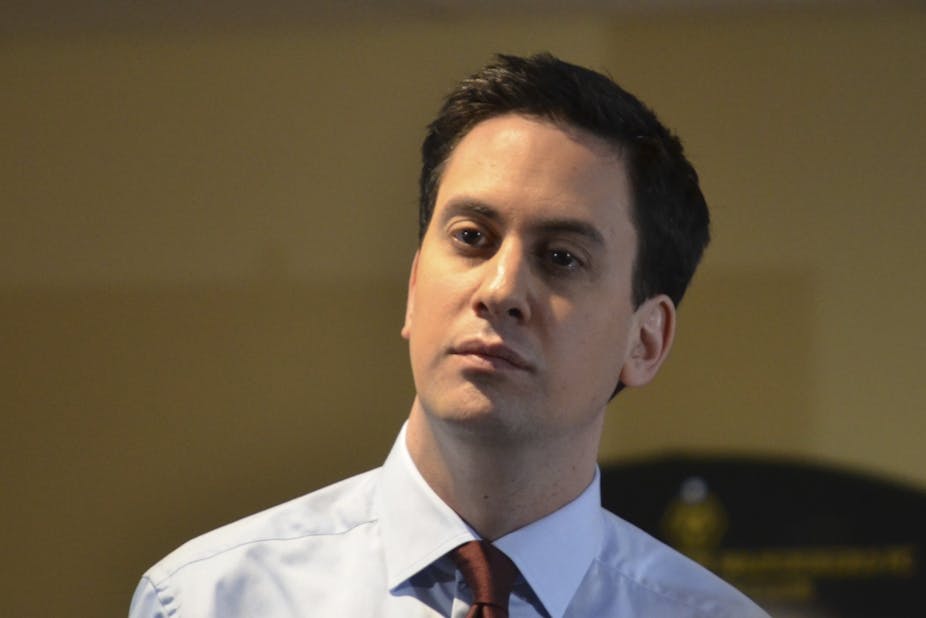Ed Miliband just can’t seem to put the Falkirk shenanigans of the recent past behind him. The saga casts a serous shadow over his potential as a future prime minister – and the role of unions is in no small part to blame.
Now that Unite has started to backpedal over the Grangemouth refinery closure and the mass redundancies that will ensue, the Falkirk by-election accusations have come back to haunt Miliband. Last week, he found himself once again having to defend his party against allegations of vote rigging.
Both controversies involved Stevie Deans, a Unite representative who quit his job in October. He was plant convenor at Grangemouth and stood at the centre of the Falkirk saga, having been accused by Grangemouth owner Ineos of inappropriate use of company resources for union business. Despite the accusations, Deans has held on to his roles as chairman of the local Labour party and Unite’s convenor in Scotland and he still has the support of Unite’s leader Len McCluskey.
When asked about Unite’s activities at Grangemouth during prime minister’s questions, David Cameron was quick to accuse Miliband of not having the guts to hold an inquiry into the activities of the union. Meanwhile, the outcome of the Labour Party inquiry into Deans’ activities in Falkirk remains unpublished.
Although he is not against trade unions per se, Cameron has accused their “bully boy” leaders of “intimidating families, intimidating witnesses and intimidating the leader of the Opposition”. “They pick the candidates, they pick the leader and bully him until they get what they want,” he shouted during PMQs. He likened Miliband to the mayor of a Sicilian Mafia town, afraid to stand up to those who put him in office.
Benn’s legacy
Now, just when Miliband must have felt things couldn’t get much worse, Tony Benn, the arch socialist, comes charging to the rescue. In an interview in the Big Issue, Benn argues that Miliband would be the ideal person to occupy Number 10. He says Miliband is to be trusted, but one nevertheless wonders whether his support for business is simply a veneer that will be quickly stripped away if Labour is elected in 2015. Having worked for Benn as a student, it isn’t surprising that Miliband identifies so strongly with the left of the party and is likely to be swayed by it.
Benn’s untimely intervention won’t do Miliband any favours as the preparations for the the next election get underway. Miliband wants to get people in business on side but they will no doubt be worried about the influence Benn and those like him may have over the Labour leader.
Back to Blair
In recent years Labour’s successes at the ballot box under Tony Blair were largely due to the realisation that the changes taking place in Britain would mean that a new type of party would be needed to represent workers.
The late Roy Grantham, who led the APEX union during the Grunwick film processing lab dispute of the 1970s, was one of those trade unionists who paved the way for New Labour in the first place. By forming the Trade Unions for a Labour Victory organisation, they sought to inject a new realism into the Labour party. Grantham was a very different character to McCluskey; a man who looked to the future rather than the past.
During the 1970s, while other unions favoured the strike, Grantham favoured mediation. He was one of the first to realise that the adversarial relations between management and unions which characterised Britain could not continue. Grantham and his colleagues were instrumental in convincing Tony Blair not to repeal the Thatcherite labour laws that many on the left of the party found iniquitous.
Whether or not people like Blair, his election achievements cannot be underestimated. Let’s face it, under Gordon Brown, Labour excelled in glorious mediocrity. If Miliband is persuaded to lurch to the left by people like Tony Benn, then Labour can look forward to another five years on the opposition benches.
If Labour really wants to win the next election, it needs to oust Red Ed. In his place they need to elect a leader who is prepared to embrace the Blairite policies that kept the party in office from 1997 until 2010.

